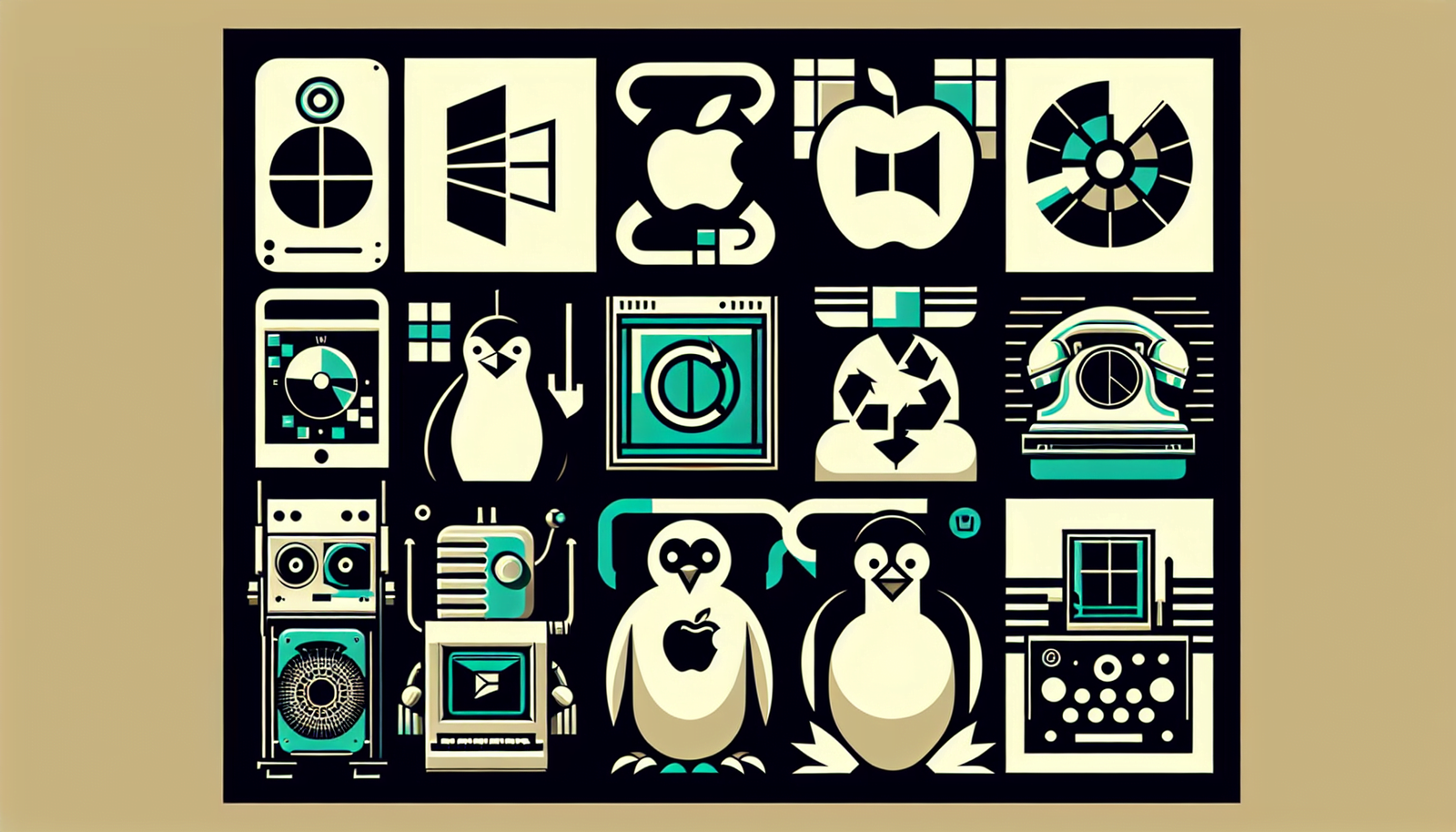In this article, we will explore the diverse array of computer operating systems available today. From familiar names like Windows and macOS to lesser-known options such as Linux and Chrome OS, we will discuss the unique features and functionalities each operating system offers. Whether you are a tech enthusiast seeking to expand your knowledge or a beginner looking to choose the right operating system for your needs, this article will provide you with a comprehensive overview of the different types of computer operating systems. Computer operating systems are the backbone of any modern computing device. They manage the hardware, software, and user interface, allowing us to interact with our computers seamlessly. There are several different types of computer operating systems, each with its own unique features and capabilities. In this article, we will explore the most popular operating systems and delve into their key characteristics.
Windows
One of the most widely used operating systems in the world, Windows is developed by Microsoft Corporation. It offers a user-friendly interface and supports a vast range of software applications. Windows has undergone numerous iterations over the years, with the latest version being Windows 10. Previous versions include Windows 8, Windows 7, Windows XP, Windows Vista, Windows NT, Windows 98, Windows 95, Windows 3.1, and even the original Windows 1.0.
macOS
Developed by Apple Inc., macOS is the operating system that powers Apple’s Macintosh computers. Known for its sleek design and seamless integration with Apple’s software and hardware ecosystem, macOS provides a stable and secure computing experience. Some notable versions of macOS include Big Sur, Catalina, Mojave, High Sierra, Sierra, OS X El Capitan, OS X Yosemite, OS X Mavericks, OS X Mountain Lion, and OS X Lion.
Linux
Linux is an open-source operating system that offers great flexibility and customization options. It is built around the Linux kernel and has a thriving community of developers and users. Linux distributions, or “distros” for short, provide various flavors and packages tailored to different needs. Popular Linux distros include Ubuntu, Fedora, Debian, Red Hat Enterprise Linux, CentOS, Linux Mint, openSUSE, Arch Linux, Kali Linux, and Gentoo Linux.
Unix
Unix is a powerful operating system originally developed in the 1970s. It is known for its stability, security, and robustness, making it a popular choice for servers and mainframes. Unix has various flavors, including AIX, HP-UX, Solaris, Mac OS X Server, SCO UnixWare, Tru64 UNIX, and BSD. While Unix is not as widely used on personal computers as Windows or macOS, it remains an integral part of the computing landscape.
Android
Android is an operating system specifically designed for mobile devices such as smartphones and tablets. Developed by Google, Android is open-source and offers a vast ecosystem of applications through the Google Play Store. It is known for its customization options, diverse hardware support, and seamless integration with Google services. Android versions have progressed over time, with the latest being Android 11. Other significant releases include Android 10, Android 9, Android 8, Android 7, Android 6, Android 5, Android 4, Android 3, and Android 2.
iOS
iOS is Apple’s proprietary operating system exclusively designed for its mobile devices, including the iPhone, iPad, and iPod Touch. It provides a polished and intuitive user experience, tight integration with Apple’s services, and a curated App Store. iOS versions are regularly updated, with the latest release as iOS 14. Past versions include iOS 13, iOS 12, iOS 11, iOS 10, iOS 9, iOS 8, iOS 7, iOS 6, and iOS 5.
Chrome OS
Chrome OS is a lightweight operating system developed by Google, primarily designed for use with Chromebook laptops and Chromebox desktops. It revolves around the Chrome web browser and emphasizes cloud-based applications and storage. Chrome OS versions are regularly updated with improvements and new features. Notable releases include Chrome OS 85, Chrome OS 84, Chrome OS 83, Chrome OS 82, Chrome OS 81, Chrome OS 80, Chrome OS 79, Chrome OS 78, Chrome OS 77, and Chrome OS 76.
RTOS
RTOS, or Real-Time Operating System, is an operating system designed to handle time-sensitive applications and processes. It provides deterministic behavior, ensuring that tasks are executed within strict time constraints. Popular RTOS options include FreeRTOS, ThreadX, VxWorks, QNX, ChibiOS, Zephyr, Tron, INTEGRITY, RIOT, and embOS. RTOS finds its applications in industries such as aerospace, automotive, medical devices, and telecommunications.
Server Operating Systems
Server operating systems are specifically designed to manage and control server hardware and resources. They focus on delivering reliable and secure performance while accommodating multiple clients and services. Some widely used server operating systems include Windows Server, Linux distributions tailored for servers, such as Ubuntu Server and CentOS, as well as proprietary options like IBM’s AIX and Oracle’s Solaris.
Embedded Operating Systems
Embedded operating systems are specialized operating systems used in embedded systems, which are dedicated computer systems designed for specific tasks or devices. These operating systems are optimized for efficiency, low resource usage, and real-time responsiveness. Common embedded operating systems include FreeRTOS, VxWorks, Windows Embedded Compact, ThreadX, Embedded Linux, INTEGRITY, QNX, Nucleus RTOS, Micrium OS, and Zephyr. They are found in various applications, including automotive systems, medical devices, industrial control systems, and consumer electronics.
In conclusion, there are numerous types of computer operating systems available, each catering to specific needs and preferences. From the widely recognized Windows and macOS to the open-source Linux and the mobile-focused Android and iOS, the diversity of operating systems allows users to select the one that best suits their requirements. Additionally, specialized operating systems like RTOS, server operating systems, and embedded operating systems showcase the adaptability of operating systems to specific domains and applications. Ultimately, the choice of an operating system depends on factors such as functionality, compatibility, user interface preferences, and the specific tasks and devices it will be used with.

